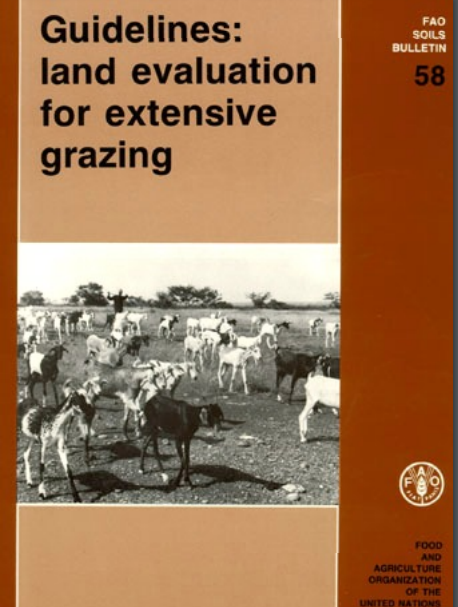Focal point
Location
The Food and Agriculture Organization of the United Nations leads international efforts to defeat hunger. Serving both developed and developing countries, FAO acts as a neutral forum where all nations meet as equals to negotiate agreements and debate policy. FAO is also a source of knowledge and information. We help developing countries and countries in transition modernize and improve agriculture, forestry and fisheries practices and ensure good nutrition for all. Since our founding in 1945, we have focused special attention on developing rural areas, home to 70 percent of the world's poor and hungry people.
Members:
Resources
Displaying 2831 - 2835 of 5074Développement du négoce des intrants agricoles en Afrique: opportunités, problématiques et défis
Le présent document examine l’état actuel de la production, de la commercialisation et de la consommation des intrants agricoles en Afrique. Le but à cet effet étant d’identifier, du point de vue du secteur privé, les principales opportunités et contraintes commerciales ainsi que les risques et défis majeurs qui y prévalent. Le document résume également les principaux partenariats et initiatives en place dans le secteur des intrants agricoles en Afrique.
Guidelines land evaluation for extensive grazing
Extensive grazing is the predominant form of land use on at least a quarter of the world’s land surface, in which livestock are raised on food that comes mainly from rangelands. The term livestock includes both domesticated animals such as cattle, sheep, goats, camels, horses, llamas and alpacas, and a broad range of wild animals kept for meat or game viewing. It is estimated that tropical grasslands alone cover 18 million square kilometres, where the natural vegetation is used by mobile animals requiring forage and water throughout the year.
UNA GOBERNANZA RESPONSIBLE EN LA TENENCIA DE LA TIERRA: FACTOR ESENCIAL PARA LA REALIZACIÓN DEL DERECHO A LA ALIMENTACIÓN
Este documento busca hacer énfasis en el derecho a la alimentación como un objetivo
primordial del conjunto de políticas públicas sobre desarrollo económico y social. Lograr
dicho objetivo depende de una gobernanza responsable de la tierra y demás recursos
naturales. La importancia de la tierra radica en que para muchas culturas representa el
vínculo directo con su propia identidad y la fuente principal de producción alimentaria en
sus distintas formas.
Responsible Governance of Land Tenure: an Essential Factor for the Realisation of the Right to Food
The present document emphasizes the right to food as a primary objective of the set of
public policies concerned with economic and social development. Achieving this
objective depends on responsible governance of land and other natural resources. The
importance of land lies in the fact that it often represents a direct link with cultural
identity, while serving as the primary source of food production and sustenance.
Good Governance and Natural Resources Tenure in the Caribbean Region
Caribbean countries in general have key issues affecting land and natural resources tenure.
These issues include; insecure and informal tenure, illegal occupation, use and degradation of
environmentally sensitive and other unsuitable land, bureaucratic and lengthy land
administration procedures, inequity in access and distribution of land, and land conflicts
exacerbated by overburdened legal systems and inadequate land information systems.









